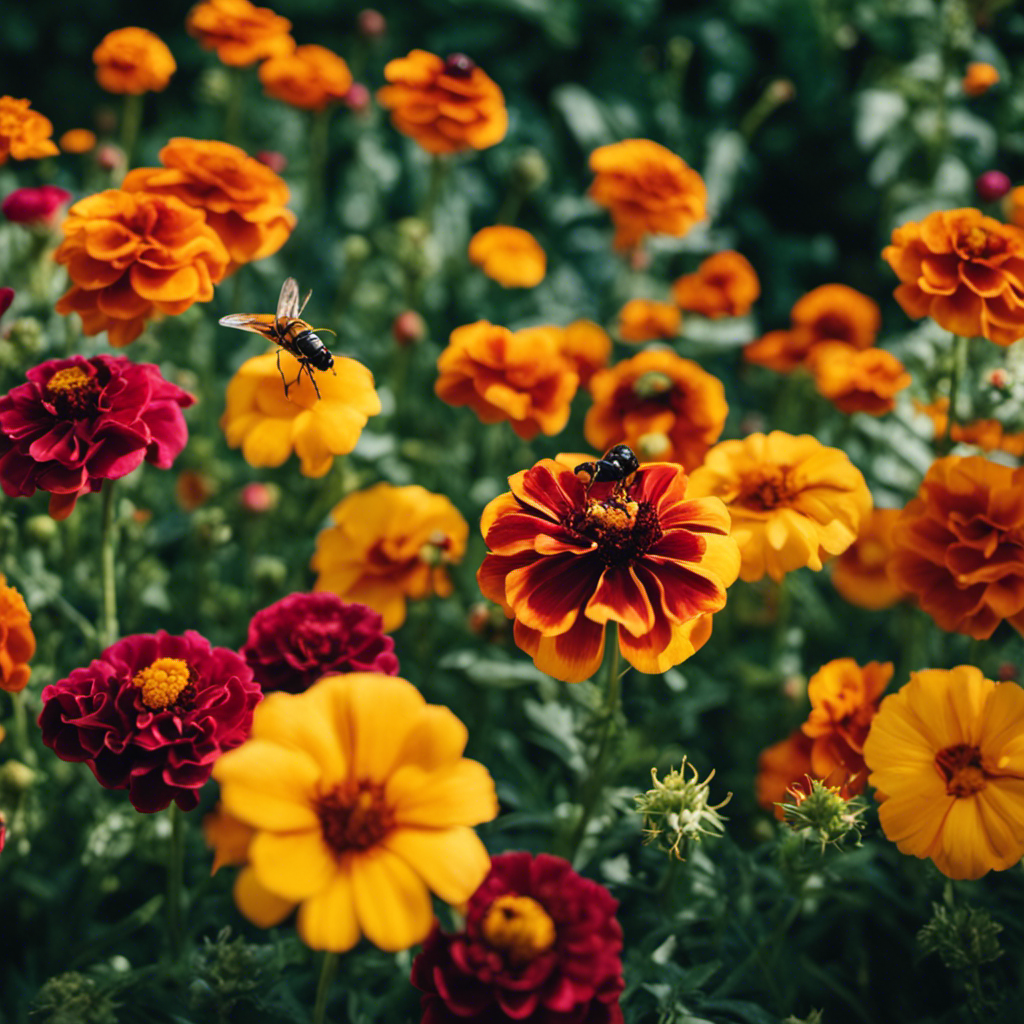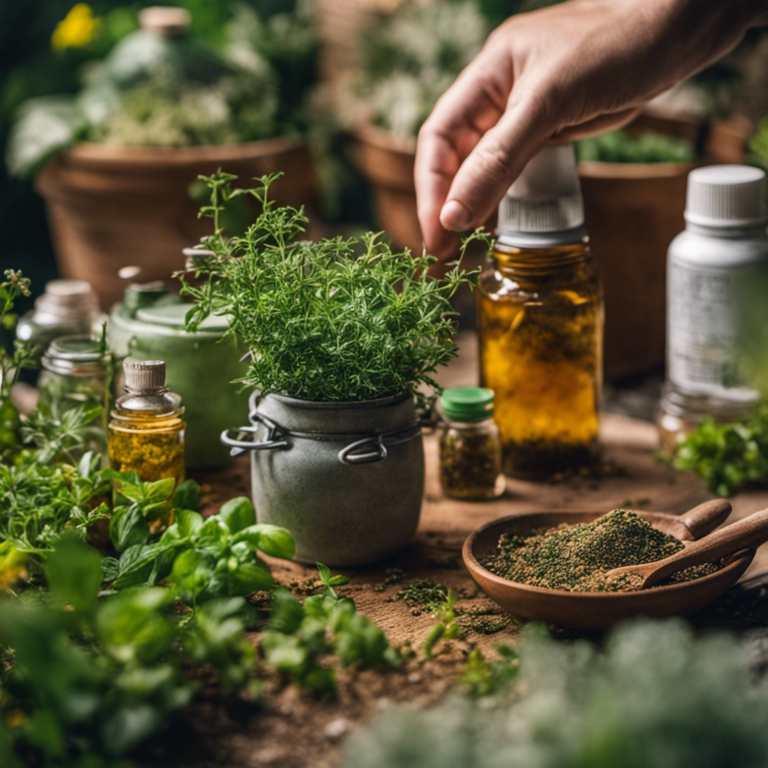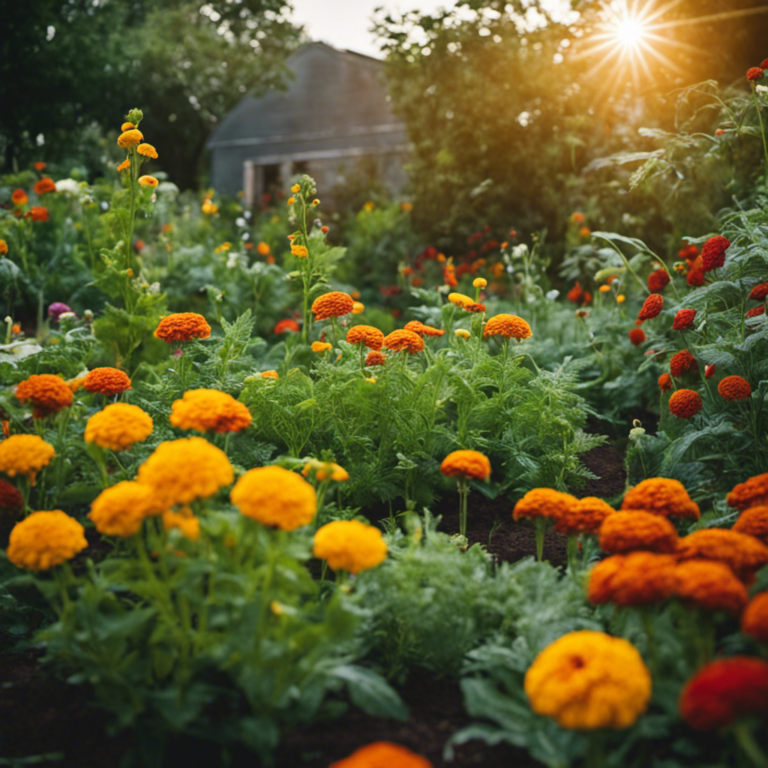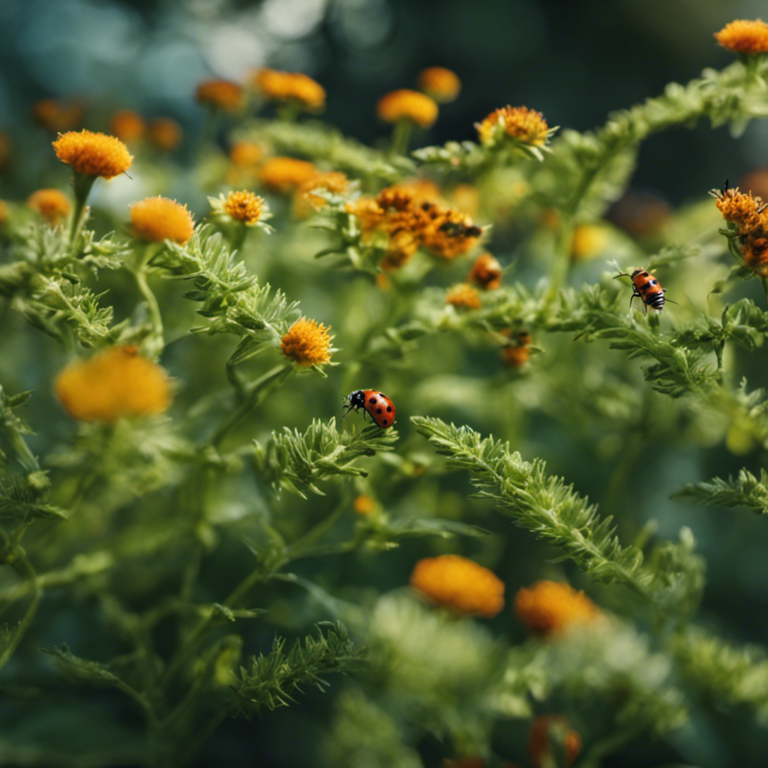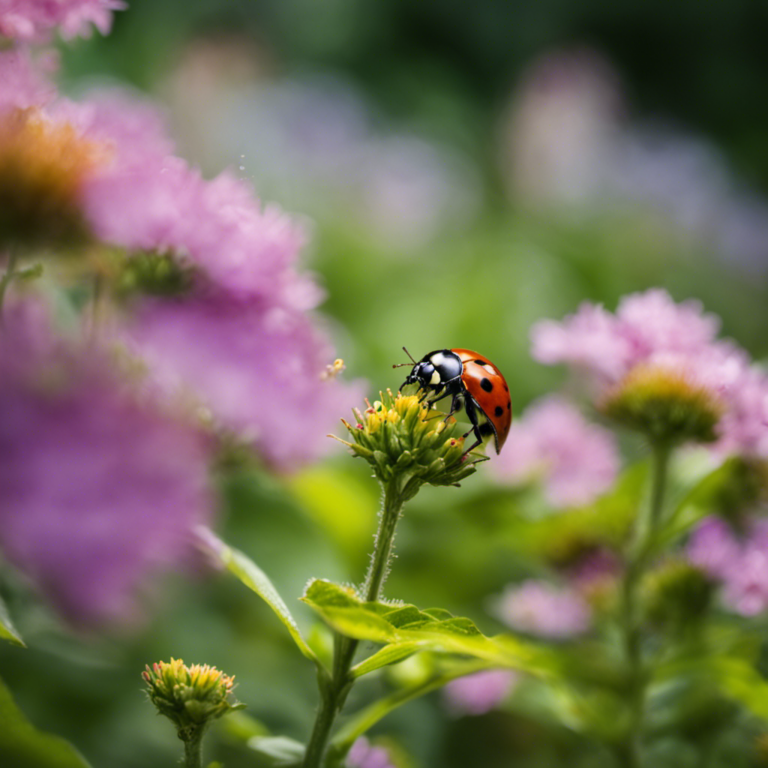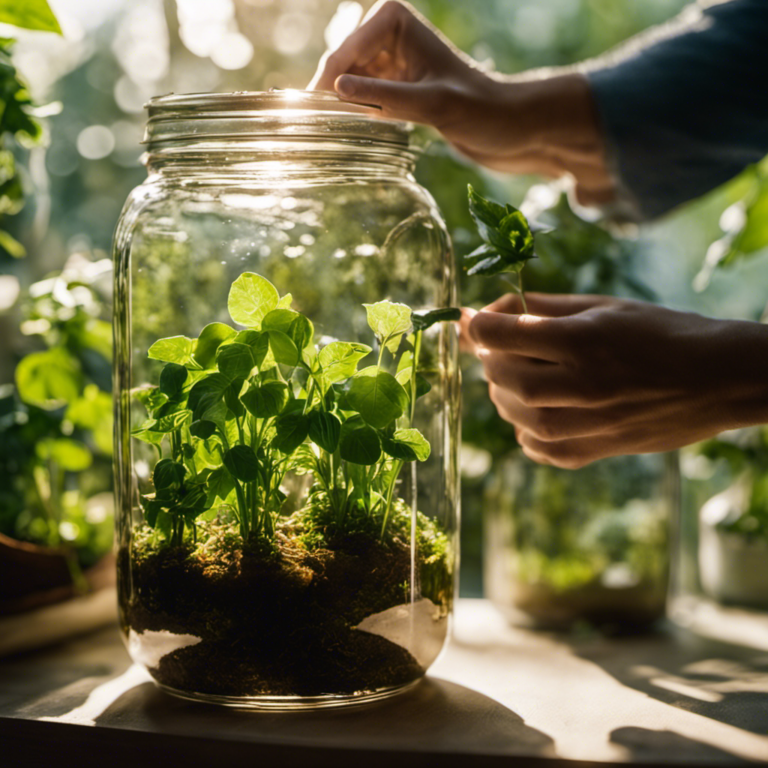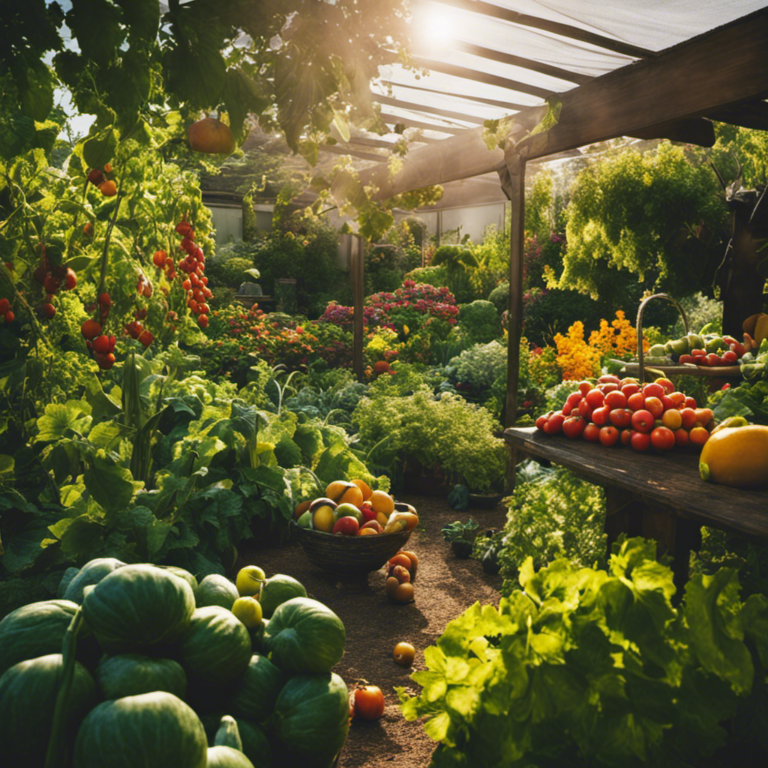Are pests causing havoc in your garden and damaging your plants? Don’t worry! With the ‘Eradicate Garden Pests Naturally: No Mercy Method,’ you can take control and reclaim your garden.
This practical guide will provide you with the knowledge and tools to combat pests using natural deterrents, homemade sprays, and smart planting techniques.
Bid farewell to destructive critters and welcome a flourishing garden. Get ready to unleash your gardening skills and confidently protect your garden without harming the environment.
Remember, a healthy garden is just around the corner!
Key Takeaways
By using natural methods such as deterrents, homemade pest control sprays, companion planting, and regular maintenance, you can effectively eliminate garden pests without resorting to harmful chemicals. These methods are not only safe for the environment but also help keep your garden healthy and thriving. Say goodbye to those pesky pests and enjoy a beautiful, pest-free garden. However, it’s important to remember that dedication and persistence are key to achieving success in pest control. So, happy gardening and enjoy the fruits of your labor!
Identify Garden Pests
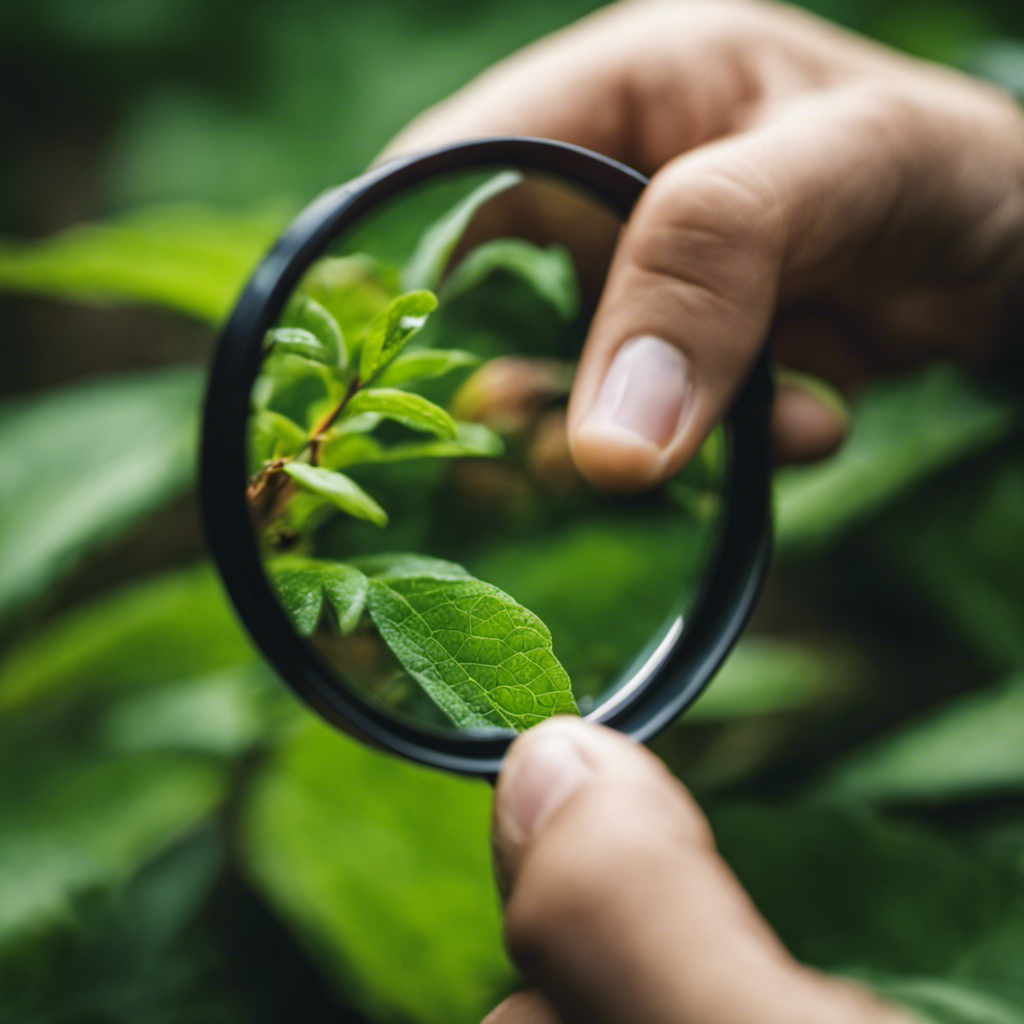
Identifying Garden Pests
To identify garden pests, closely observe your plants and look for signs of damage or infestation. Understanding how to identify pests is crucial for maintaining a healthy garden.
Start by checking the leaves for holes, discoloration, or wilting. Aphids, caterpillars, and beetles often leave visible bite marks or chewed edges.
Keep an eye out for webs, silk, or cocoons as they indicate the presence of spider mites or caterpillars. Also, pay attention to the soil for any tunnels or burrows, which might suggest the presence of underground pests like voles or grubs.
Lastly, be on the lookout for pests themselves, such as slugs, snails, or aphids, which can be easily spotted on the plants. By identifying these common signs of garden pest infestation, you can take prompt action to protect your plants from further damage.
Natural Deterrents for Pests
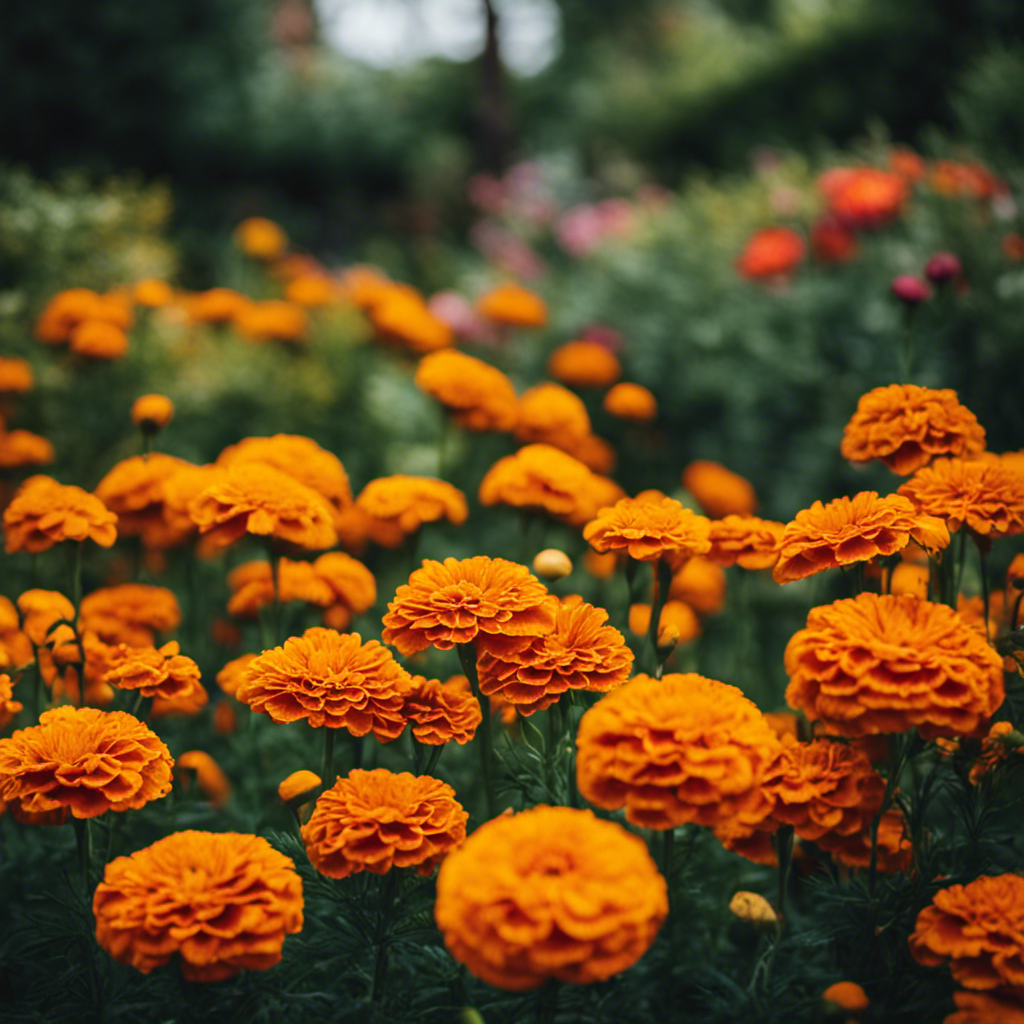
If you want to protect your garden from pests, there are several natural ways you can use to keep them away. Plant-based repellents and biological pest control methods are effective ways to repel unwanted pests without harming your plants or the environment.
Here are three natural methods you can try:
-
Neem Oil: Neem oil is derived from the seeds of the neem tree and acts as a repellent for a wide range of pests. To use neem oil, mix it with water and spray it on your plants to deter pests.
-
Garlic Spray: Garlic spray is made by blending garlic cloves with water and then straining the mixture. The strong smell of garlic repels pests like aphids and slugs. Spray the mixture on your plants to keep pests away.
-
Ladybugs: Ladybugs are natural predators of many garden pests, such as aphids and mites. Release ladybugs into your garden to help control pest populations.
By incorporating these natural methods into your gardening routine, you can protect your plants from pests without resorting to harmful chemicals. Not only will you have a healthier garden, but you’ll also contribute to a more sustainable and eco-friendly environment.
It’s important to find natural ways to protect your garden from pests. Using plant-based repellents and biological pest control methods not only keeps pests away but also ensures the safety of your plants and the environment.
Homemade Pest Control Sprays
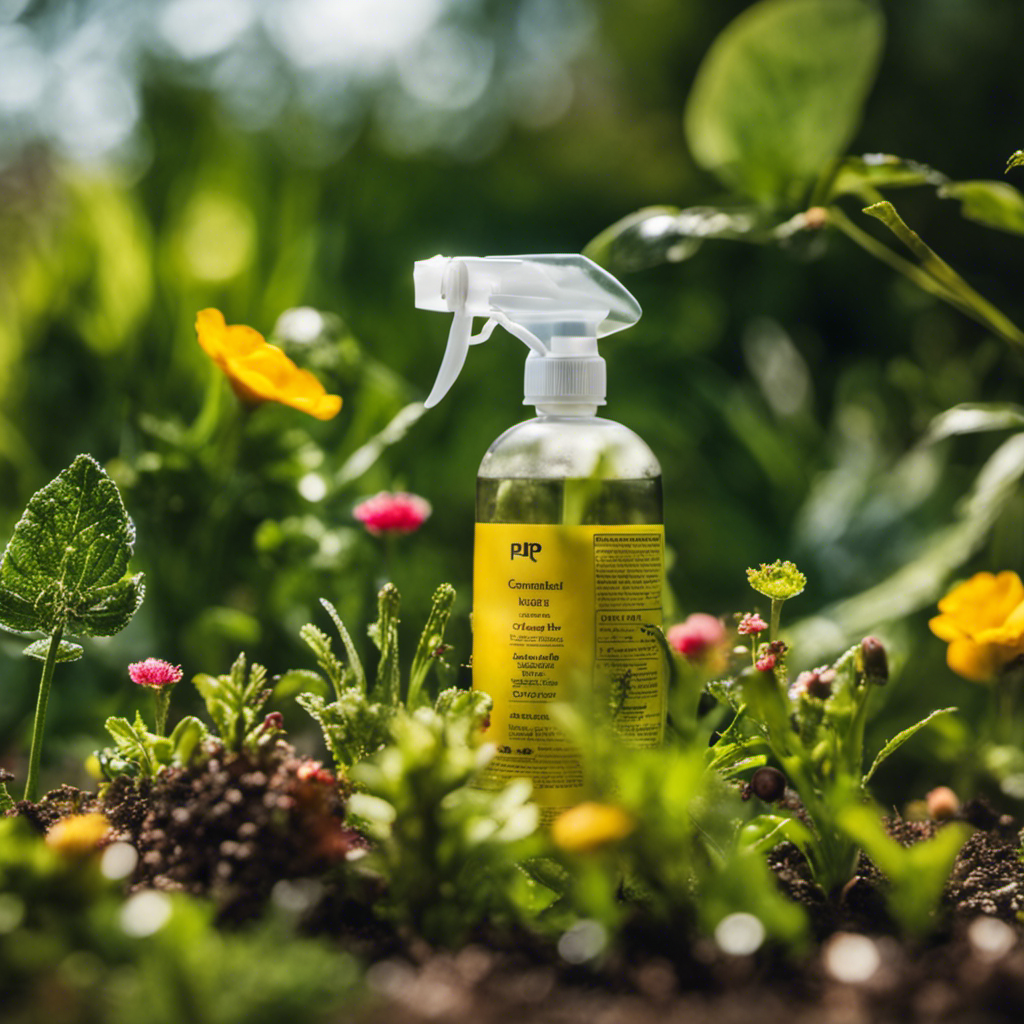
Protecting your garden from pests is essential for maintaining its health and productivity. One effective and affordable solution is to incorporate homemade pest control sprays into your gardening routine. These DIY recipes use common household ingredients, providing an organic and cost-effective alternative to commercial pesticides.
A simple and widely used homemade pest control spray involves mixing equal parts water and dish soap. This mixture can be sprayed directly onto plants to deter insects.
Another option is to create a natural spray using garlic and chili peppers. Blend these ingredients with water, strain the mixture, and transfer it to a spray bottle. This homemade spray is effective against a variety of pests, including aphids, caterpillars, and beetles.
By using homemade pest control sprays, you can protect your garden without resorting to harmful chemicals. This not only ensures the health of your plants but also promotes a thriving garden ecosystem.
Embracing organic pest control methods is a sustainable approach that benefits both your garden and the environment. So why not try making your own pest control spray and enjoy a pest-free garden naturally?
Companion Planting for Pest Prevention
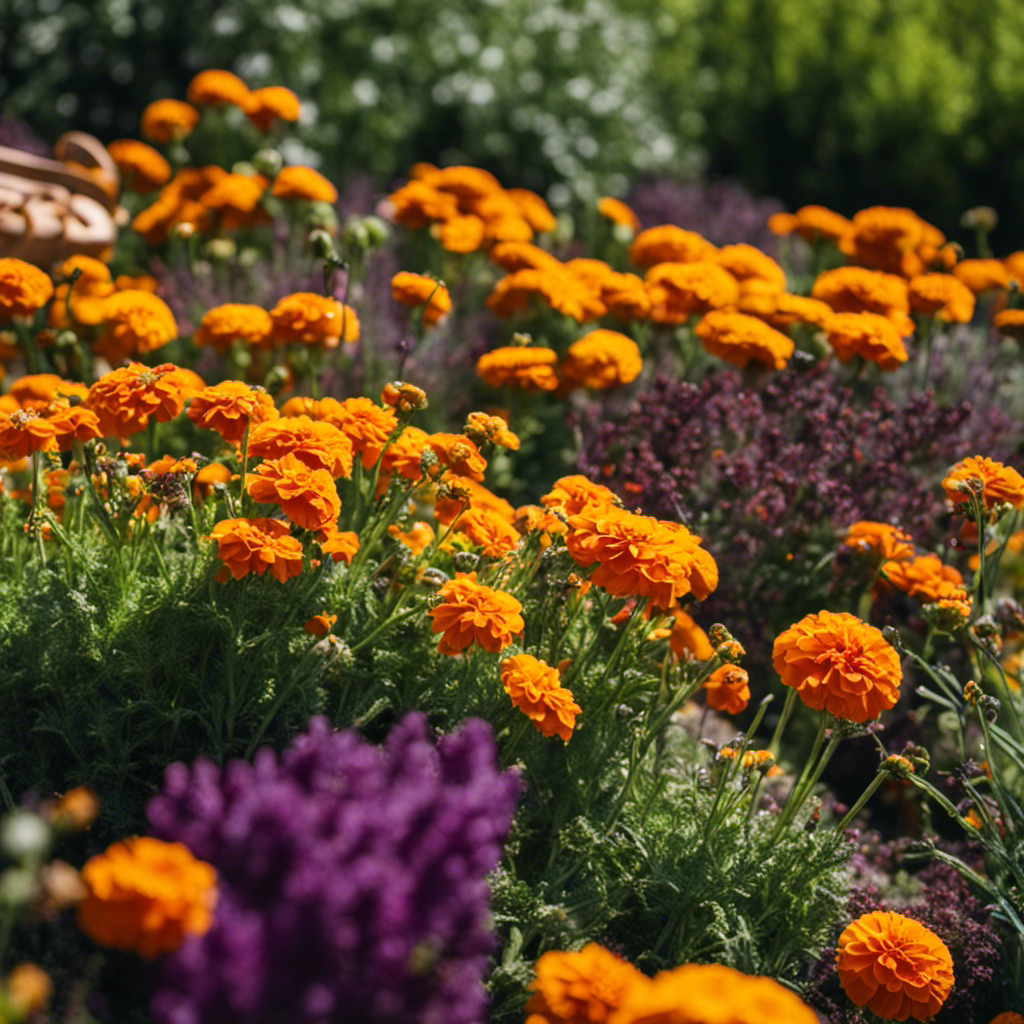
Companion Planting for Natural Pest Control
Pairing specific plants together can effectively deter pests in your garden. Companion planting is a sustainable method that helps protect your crops from pests without the need for harmful pesticides. By strategically planting certain plants next to each other, you can create a harmonious environment that attracts beneficial insects while repelling pests.
For example, marigolds are known to deter aphids and nematodes, while nasturtiums can help repel whiteflies and squash bugs. Basil is effective at keeping mosquitoes and flies at bay, and garlic can deter Japanese beetles and aphids.
In addition to companion planting, practicing crop rotation is another effective way to prevent pest infestation. By rotating your crops each season, you disrupt the life cycle of pests and reduce the buildup of pests that target specific plants. This natural pest prevention method not only helps maintain a healthy garden but also promotes a sustainable and eco-friendly approach to gardening.
Remember, a diverse and balanced garden ecosystem is key to keeping pests under control. By incorporating companion planting and crop rotation strategies, you can create a thriving garden that’s pest-resistant and environmentally friendly.
Quote: ‘Companion planting is like having a natural pest control team in your garden. It’s a sustainable and effective way to keep pests at bay while promoting a healthy ecosystem.’
Maintenance Practices for Pest-Free Gardens
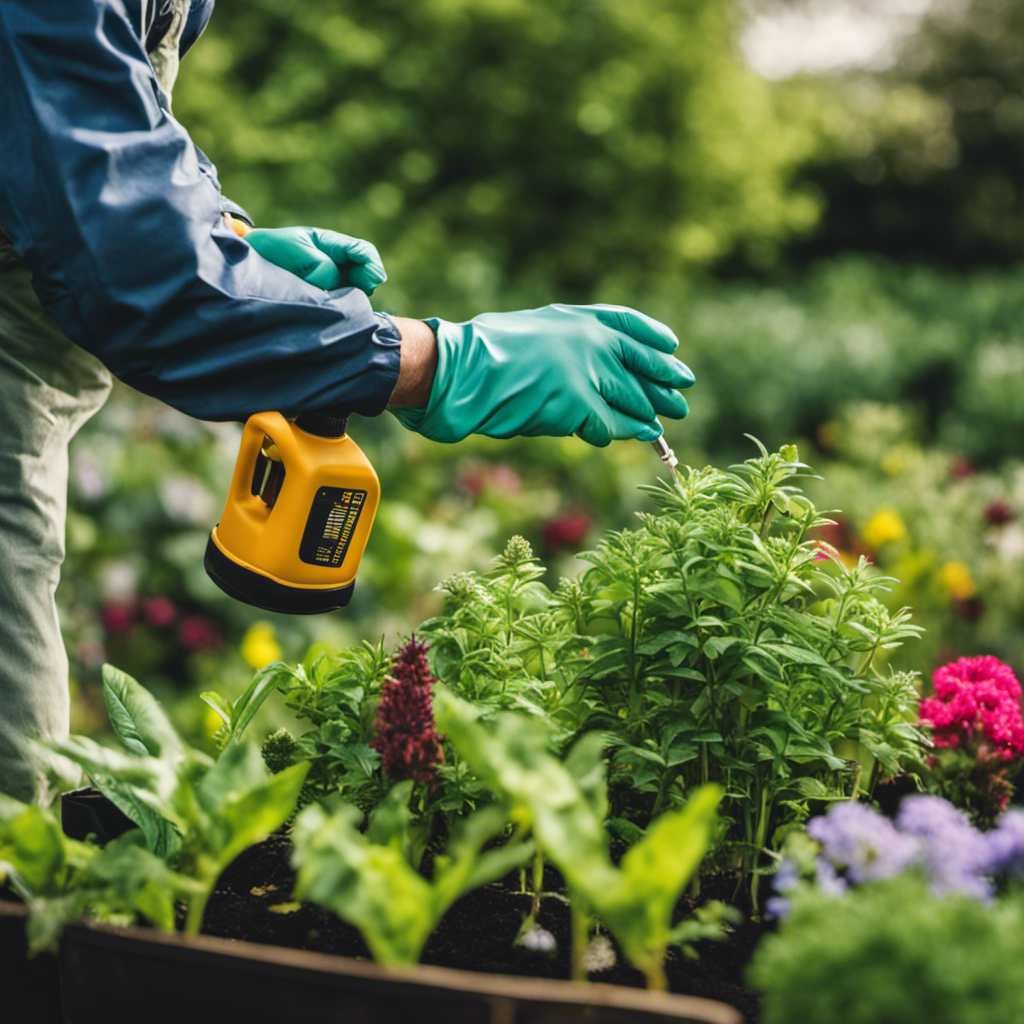
Maintaining a pest-free garden is essential for the health and vitality of your plants. One effective practice is crop rotation, where you change the location of different plant varieties each year. This helps prevent the buildup of pests that target specific plants, as it disrupts their life cycle and reduces their population.
Another important practice is attracting beneficial insects to your garden, such as ladybugs and lacewings, which feed on pests like aphids and caterpillars. You can attract these helpful insects by planting flowers like marigolds and daisies, which provide them with nectar and pollen.
It’s crucial to avoid using chemical pesticides that harm both pests and beneficial insects. Instead, opt for organic methods like neem oil or insecticidal soap to control pest populations.
Conclusion
By implementing natural deterrents, homemade pest control sprays, companion planting, and maintenance practices, you can effectively get rid of garden pests without using harmful chemicals.
These methods will help maintain the health and vitality of your garden, allowing your plants to thrive.
So, bid farewell to pesky pests and welcome a beautiful, pest-free garden.
However, remember that dedication and persistence are key to achieving success.
Happy gardening!
